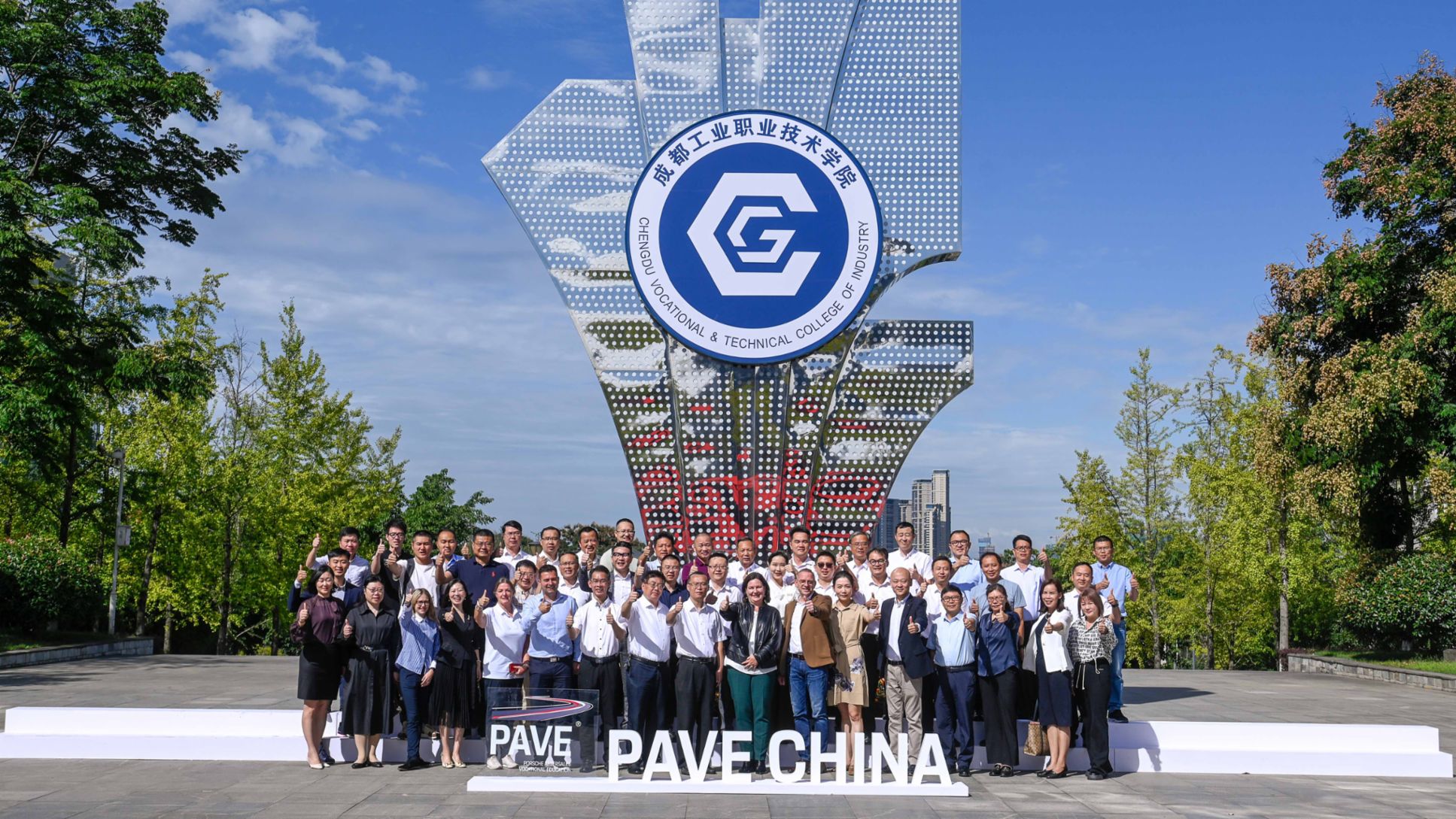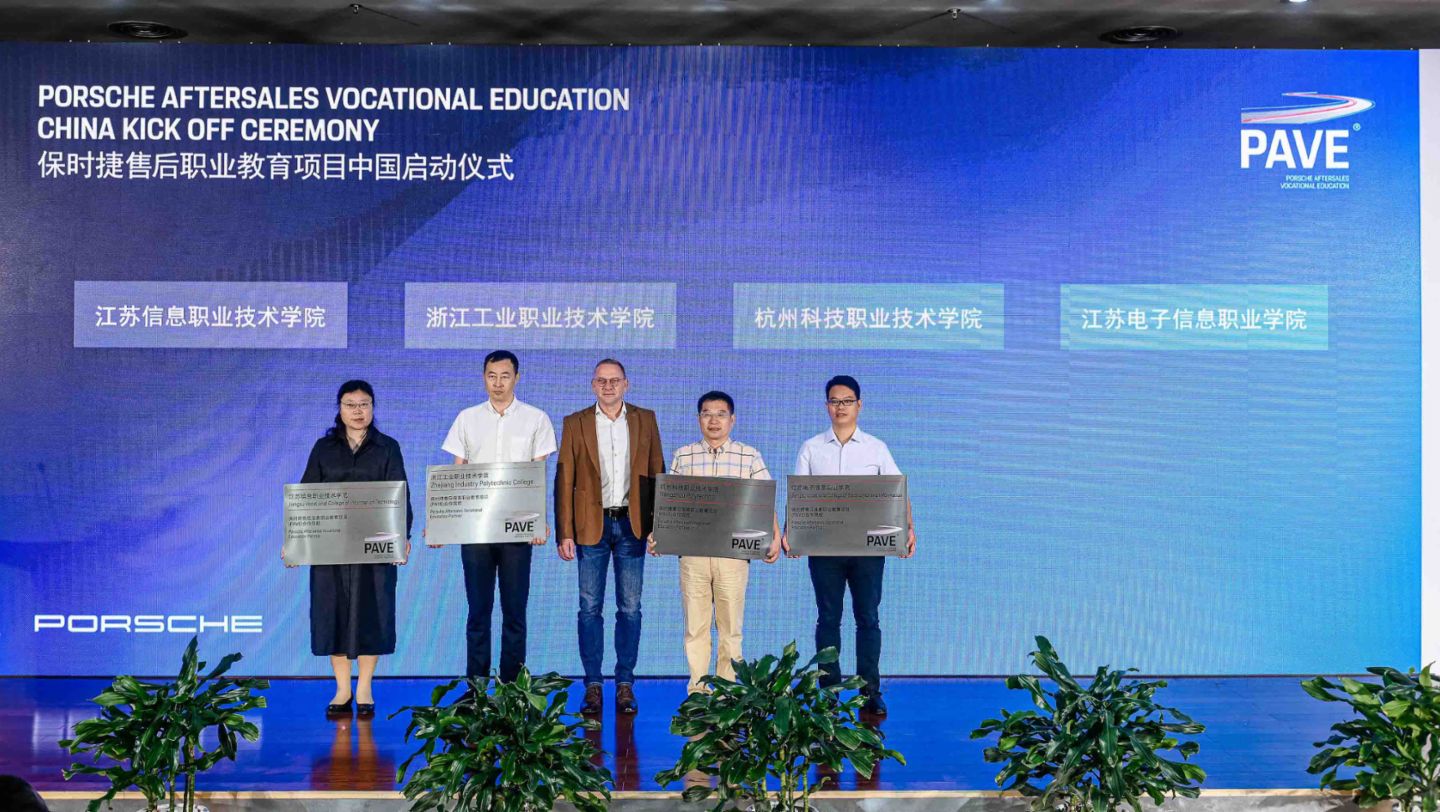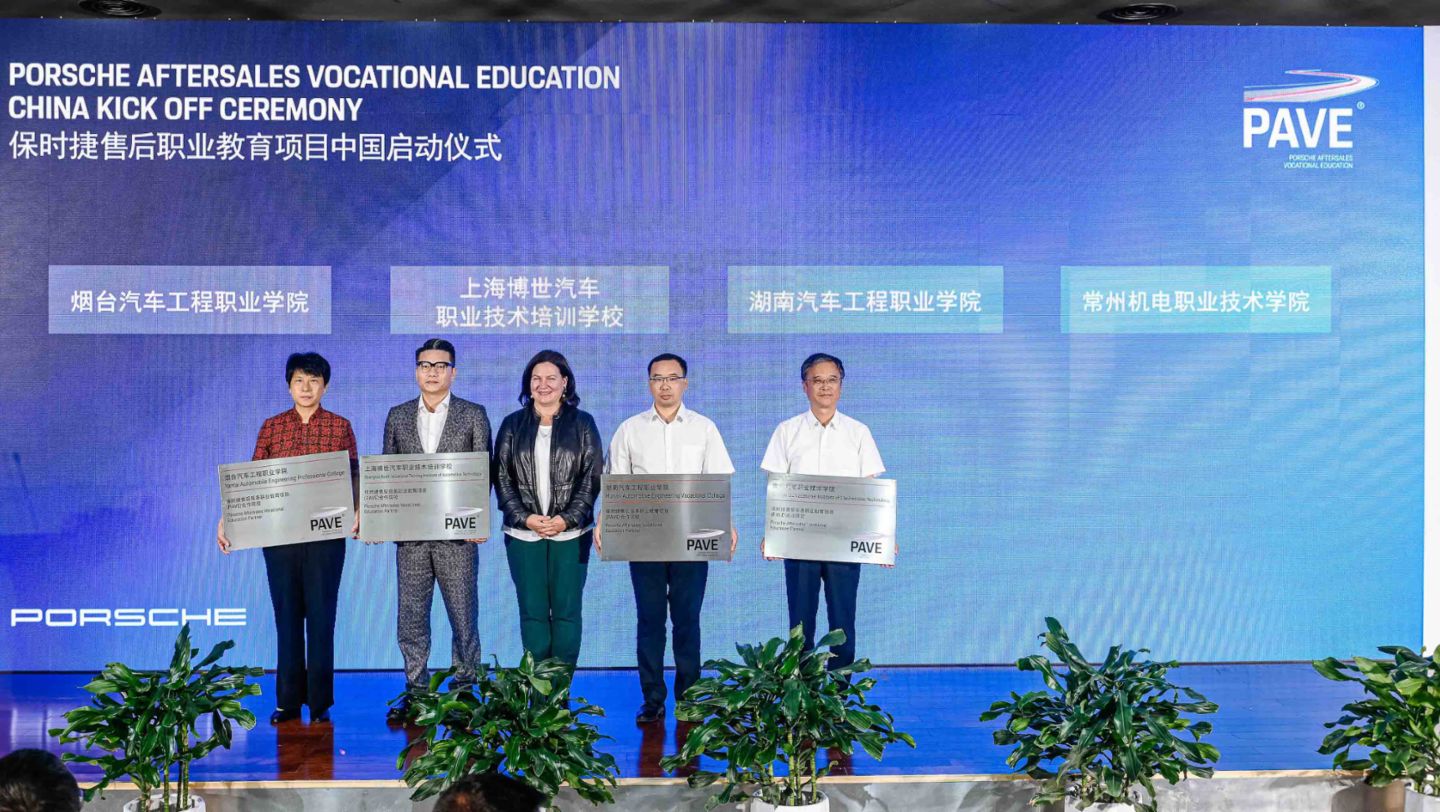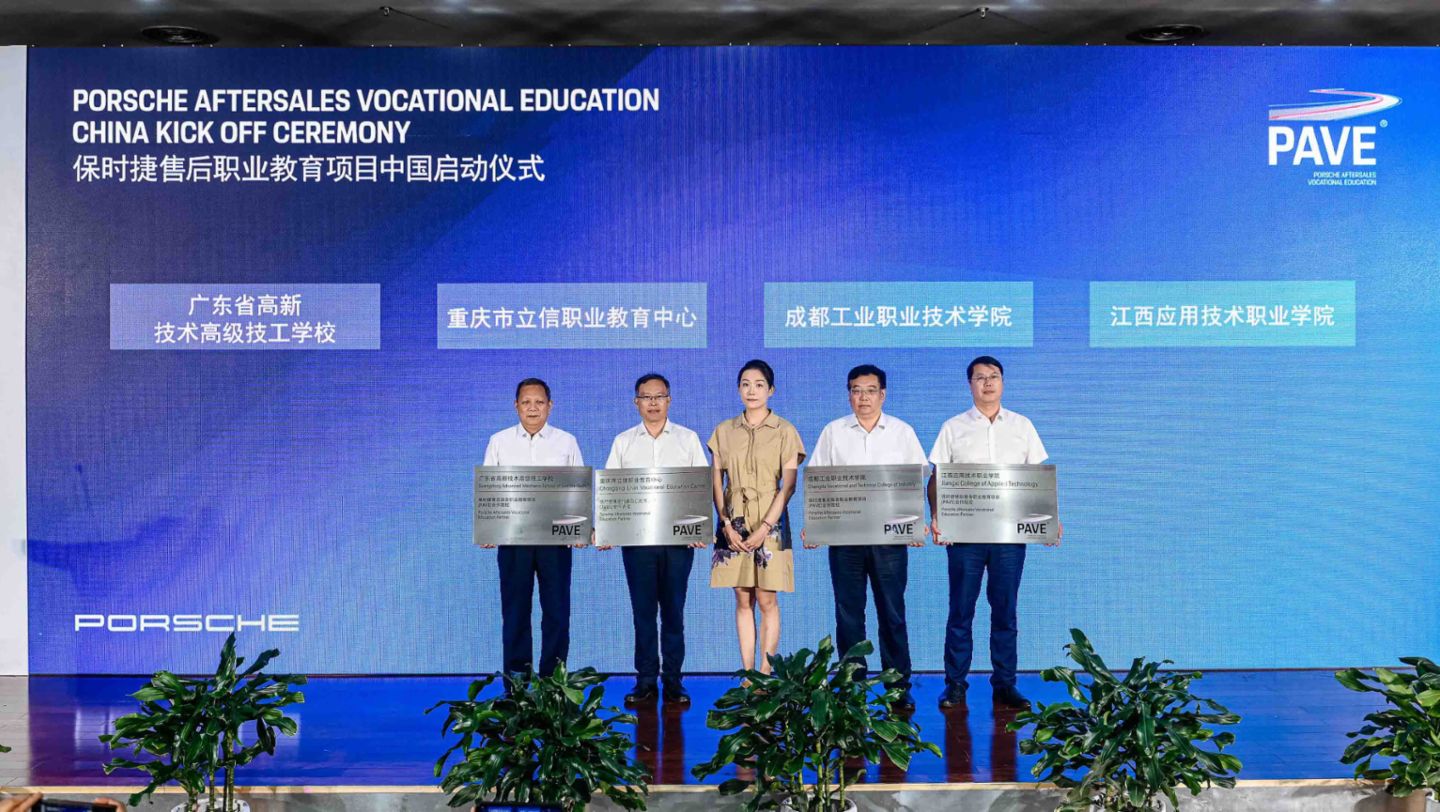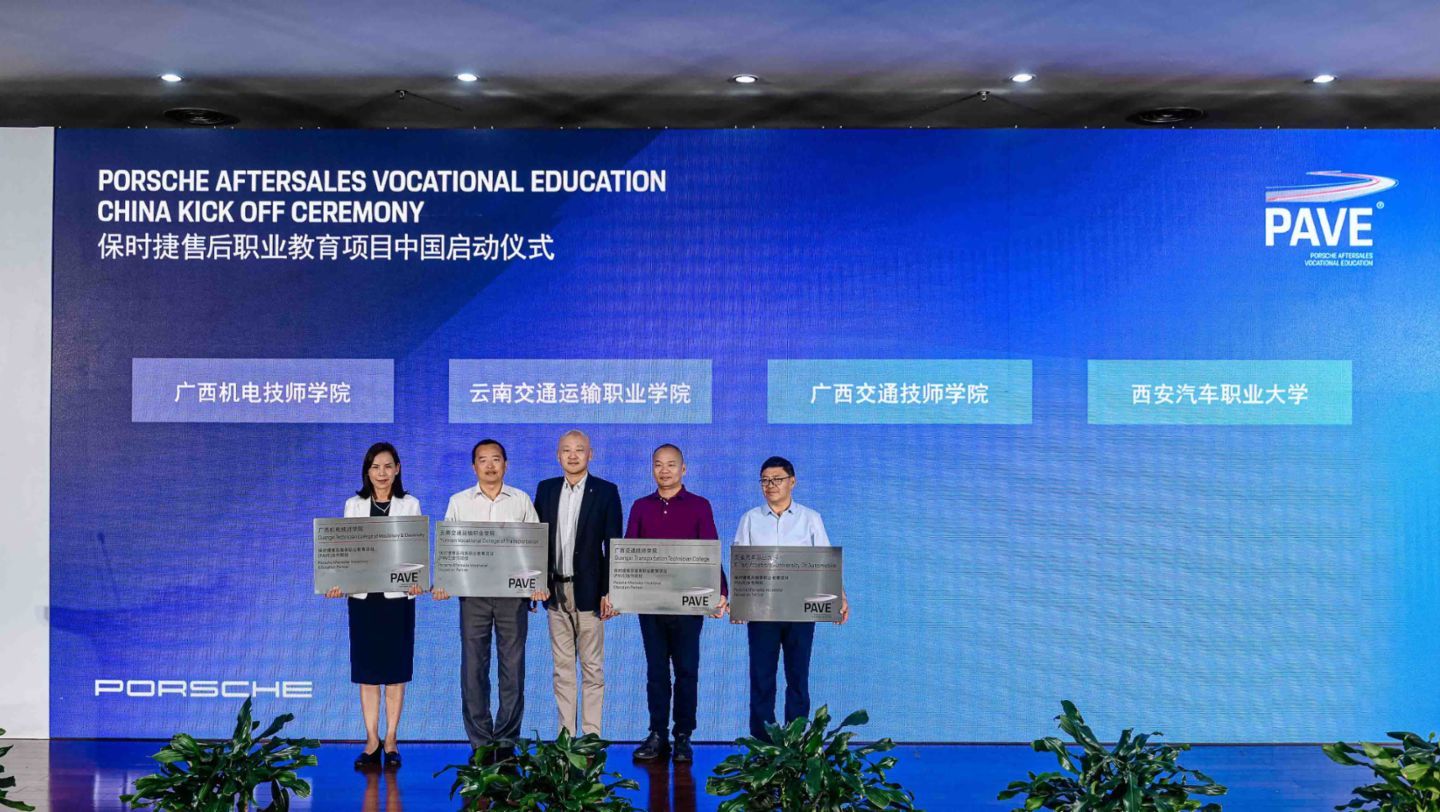The goal of the collaboration is to expand the range of professions in the automotive sector and adapt them to the demands of the industry and future technologies. Focussing on a skills-oriented curriculum that is based on the requirements of the industry, Porsche is working towards a deeper connection between industry and education. The company aims to build an innovative vocational training system based on the latest methodological, didactic approaches that will equally benefit students, schools, companies, the industry, and society as a whole in the region.
“Porsche has always been committed to vocational training, thus supporting the education of skilled workers in these regions. Vocational training is one of the pillars within the transformation. Additionally, PAVE generates added value for society and the dealerships while boosting the economy,” explains Torsten Klavs, Manager Corporate Diplomacy and Corporate Citizenship at Porsche AG. “The network of schools cooperating with PAVE is continually growing, and we are really looking forward to further expanding the PAVE programme in China. Our goal is to train technical skilled workers for China’s digital future.”
“Vocational training and developing talent have always been very important to Porsche. We are continuously funnelling valuable experiences from local practice into international standards, thereby building an excellent platform for the professional training and further education of the next generation of young people,” says Michael Kirsch, President and CEO of Porsche China.
The PAVE ecosystem creates perspectives and opportunities for the skilled workers of tomorrow
PAVE has a modular structure based on the principle of demand-oriented vocational training. Its training and further education measures are tailored to the requirements of each specific country. A portfolio developed especially for the programme provides additional support for the teacher qualification and further training in China. With PAVE, Porsche consciously educates beyond its own requirements and thus generates additional perspectives. The sustainability of the programme is ensured through cooperations, the networking of the international PAVE locations, and the programme’s roots in the local region. The training content is based on technological progress and megatrends, thus helping technical skilled workers to adapt to the current demand in their region.
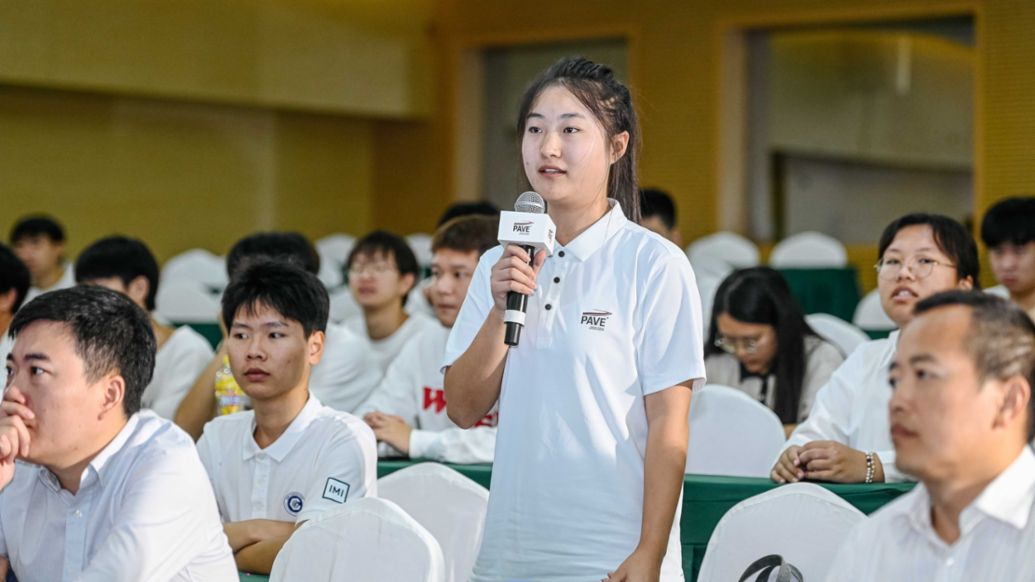
PAVE is a systemic, sustainable education solution that consists of three main components: teaching the skills needed for the workplace, qualifying teachers and trainers, and using technological learning tools to reinforce expertise. The curriculum focuses on qualification and practical education – including high-volt technology and digital content, for example – to meet the new technological challenges of the transformation. It helps the students to adjust to the rapidly developing automotive industry.
About PAVE
The first benchmark project of the PAVE initiative was launched in 2008 in the Philippines. Ever since, PAVE has been committed to educating technical skilled workers on a global scale and to the highest standards. In 2011, Porsche started a strategic collaboration with five German car manufacturers, paving the way for the reform and practice of future-oriented talent development in the automotive mechatronics and body technology sector in China. Thereafter, the global PAVE network was further expanded with the creation of a new ecosystem for vocational training that would reliably fulfil the local market demand and the future requirements of the industry. The cooperation between the PAVE network and 16 vocational colleges in China is a significant milestone in the development of the PAVE programme.
